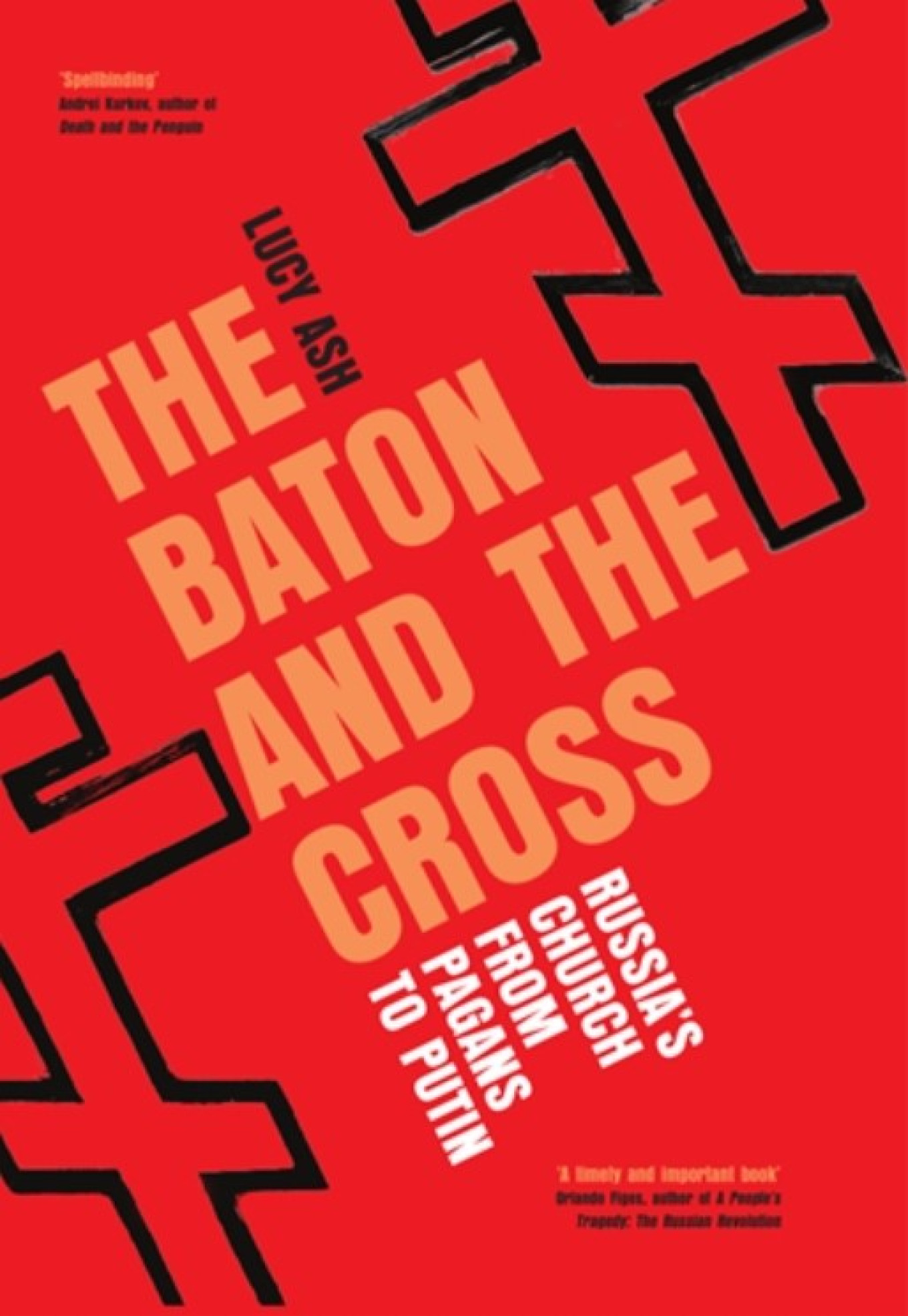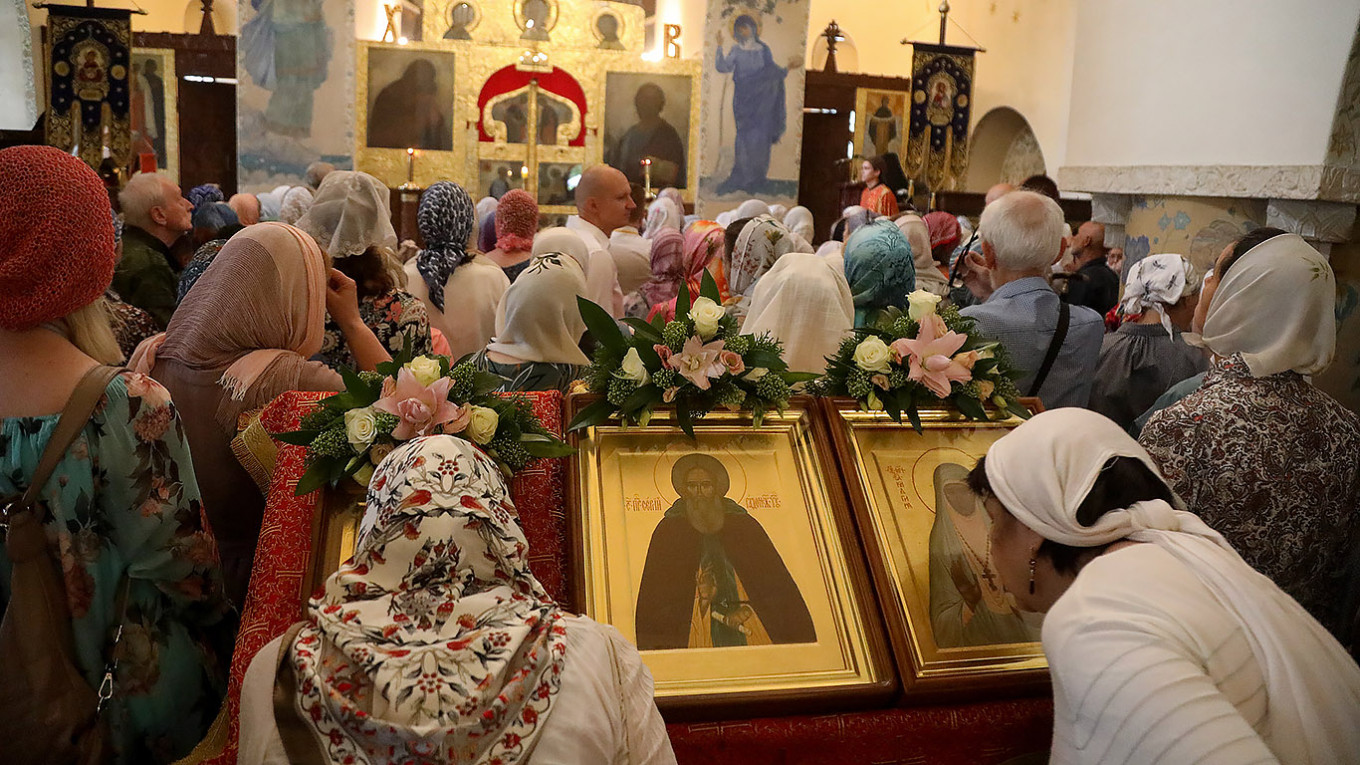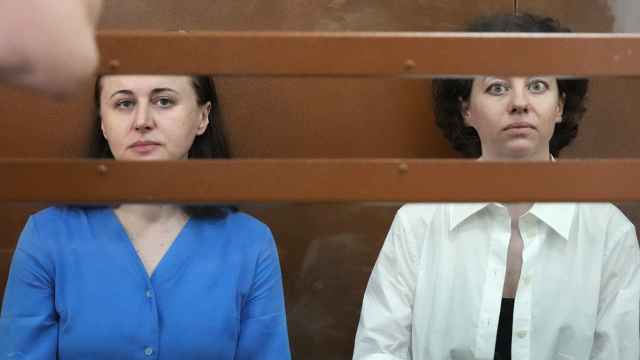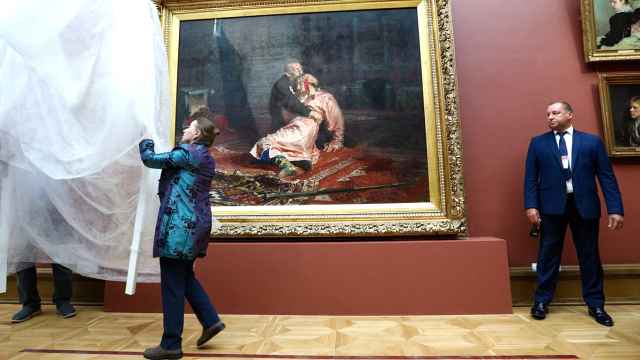“If there is no God, everything is permitted,” wrote Dostoyevsky. “The Baton and The Cross: Russia’s Church from Pagans to Putin,” the first book by former Moscow correspondent Lucy Ash, explores the provocative counterargument: If there is a God, everything is permitted — at least sometimes in the Russian Orthodox Church (ROC) throughout its thousand-year history.
Ash has divided the book simply into “Past” and “Present," in which she weaves stories from her many years in Russia and Ukraine to bring context to historical events. Some periods of history, however, defy context. For example, before the Viking princess Olga found God, she was better known for her revenge on the tribe who killed her husband: she invited them to a mead-soaked banquet before slitting their throats and burning down their homes with pigeons that had flammable rags attached to their legs.
Olga’s grandson was Volodymyr of Kyiv, who brought Christianity to the Rus in 988. This event is often abused in interviews by Putin, who still seems angry that the historic birthplace of Orthodoxy now lies within another sovereign country – Ukraine.
This is not a comprehensive history of Orthodoxy in Russia. Ash tells us of the feared bodyguards of Ivan the Terrible, the struggle between the Slavophiles and Westernizers, and the excommunication of Tolstoy. But she doesn’t delve into how Orthodoxy triumphed over other religions vying for royal and public favor, and nor does she explore at length Orthodox anti-Semitism and pogroms.
Ash takes care to show both sides of the abusive relationship between church and state. Throughout Russia’s history, leaders have always used faith as a stick to beat the people; and yet the church has been beaten, too. During the godless Soviet years, few people had more priests killed than former seminarian Joseph Stalin.
“In 1937,” Stalin said, “The word God will disappear from the Russian vocabulary.” And yet after unceremoniously switching sides in the Second World War, Stalin found he needed the Church to defeat the Germans. He even allowed favored priest Sergius to fundraise via “a special account in the state bank to supply armored vehicles to the Red Army.”
Ash compares this about-face to the rehabilitation of the Russian Orthodox Church in the late-Soviet period. She writes that the head of the KGB: “came to the same conclusion as Stalin: atheism could not be relied upon to install patriotism […] Putin was of the same persuasion.”
So it came to be that the Romanov family – assassinated in the revolution and buried in an unmarked mass grave – became minor saints in Russia in the year 2000. They were perhaps only minor saints in Russia. But Ash takes a side trip to the U.S. Bible Belt, where a sect of American converts to Orthodoxy have started worshipping Tsar Nicholas II.

In the “Present” section Ash gives us an eviscerating portrait of Patriarch Kirill, the head of the Russian Orthodox Church. Like Putin, Kirill rose to power as a Westernizer “but will be remembered as an arch-reactionary.” He is clever and opportunistic. There are some nice details. For example, in the 1990s, the Church become Russia’s largest importer of foreign cigarettes. Under Kirill, the Patriarchate received duty-free Winstons and Camels as “humanitarian aid,” making almost $476 million from their resale.
Ash is explicit about the Church’s links to the security forces. She considers Kirill and most of Russia’s top priests to be in the FSB’s pockets. In the Cold War some priests were agents in their own right. Ash goes further than some, drawing on conversations with historian Felix Corley to describe ROC priests in the diaspora combing the death registers of their new parishes to find identities for future spies.
Kirill remains one of the most zealous backers of Russia’s “Holy War” in Ukraine. Ash is generally sympathetic towards the squabbles of religious life, but here she is brutal: “There were disagreements in Orthodox circles…some [clerics] thought it was fine to bless machine guns, tanks, and submarines, but drew the line at weapons of mass destruction.”
She notes that Kirill is an extremist even by Christianity’s violent historic standards. Early Christian philosophers thought those who killed in wars should repent the blood they shed; Kirill’s talk of martyrs and the joyous afterlife comes closer to “Orthodox jihad.”
The chapter on war in Ukraine is thoughtful and well-observed. At least 39 priests from different churches across Ukraine have been killed or executed by Russia since February 2022 – and yet surprisingly few priests or worshippers have defected from the allegedly Moscow-backed Ukrainian Orthodox Church to the Orthodox Church of Ukraine. Ash shows us the dilemmas of ordinary people caught between two churches.
Despite the grim tales, it’s not an anti-religious work. Ash reserves her anger for the hypocrisy and corruption of the Orthodox hierarchy and the cowardice of career priests who ignore the needs of their flock.
There is a telling anecdote towards the end about a band of former thieves led by Gerontiy Chudnevich, who turned their lives around by repairing churches in a remote Arctic settlement. Gerontiy and his amateur carpenters sound like something from the New Testament. But when Kirill arrived to consecrate one of the restored monasteries, he asked whether they were still on the premises. No, he was told. “Thank God for that!” he exclaimed.
Lively and empathetic in tone, this is a nonetheless a damning book. Ash shows us that Russia’s church has integrated itself with power at the price of its soul.
"The Baton and the Cross: Russia’s Church from Pagans to Putin" is published by Icon Books. For more information, see the site here.
A Message from The Moscow Times:
Dear readers,
We are facing unprecedented challenges. Russia's Prosecutor General's Office has designated The Moscow Times as an "undesirable" organization, criminalizing our work and putting our staff at risk of prosecution. This follows our earlier unjust labeling as a "foreign agent."
These actions are direct attempts to silence independent journalism in Russia. The authorities claim our work "discredits the decisions of the Russian leadership." We see things differently: we strive to provide accurate, unbiased reporting on Russia.
We, the journalists of The Moscow Times, refuse to be silenced. But to continue our work, we need your help.
Your support, no matter how small, makes a world of difference. If you can, please support us monthly starting from just $2. It's quick to set up, and every contribution makes a significant impact.
By supporting The Moscow Times, you're defending open, independent journalism in the face of repression. Thank you for standing with us.
Remind me later.







